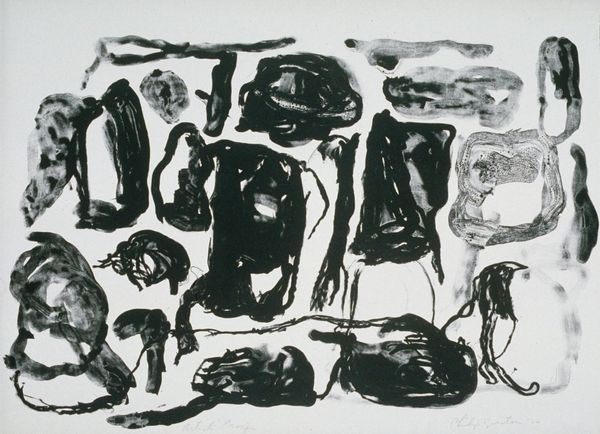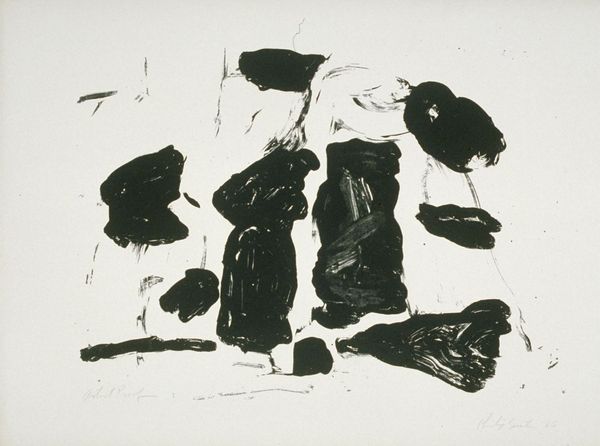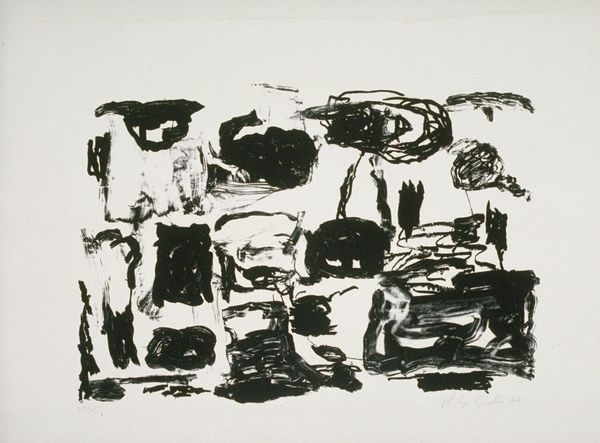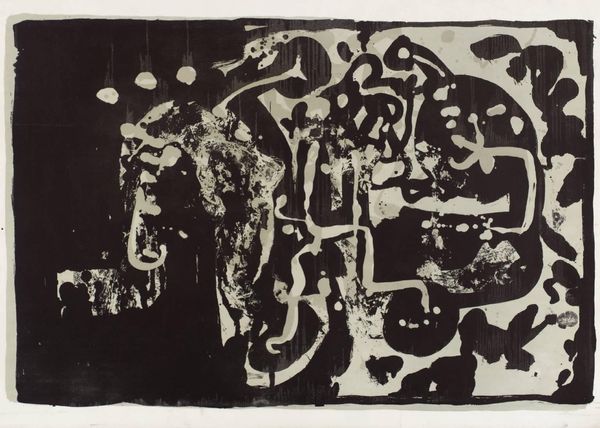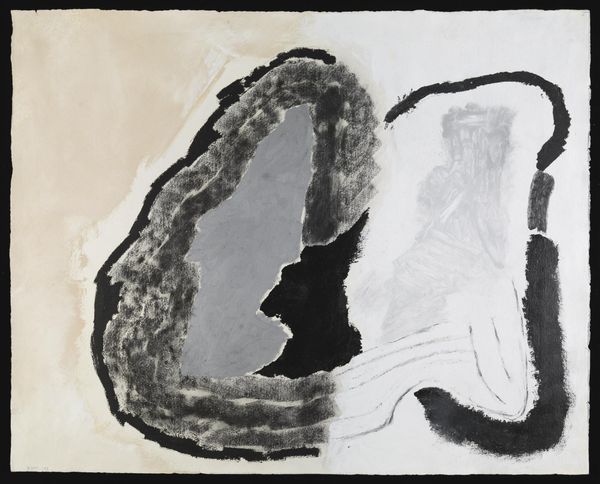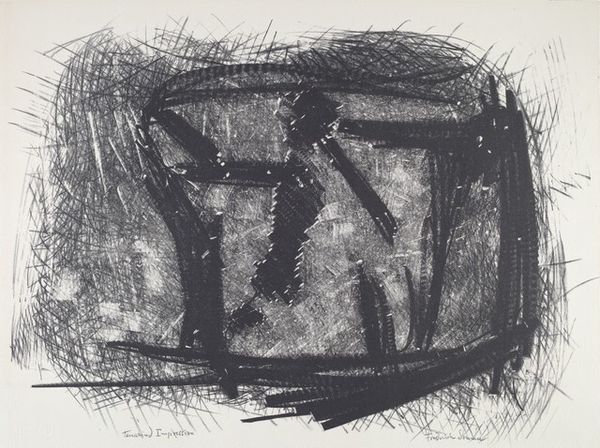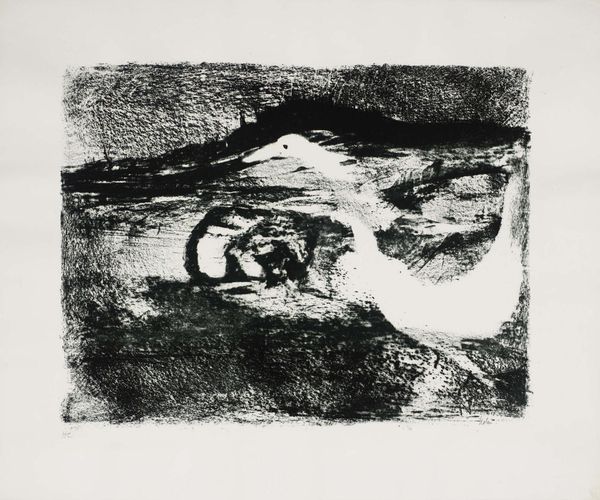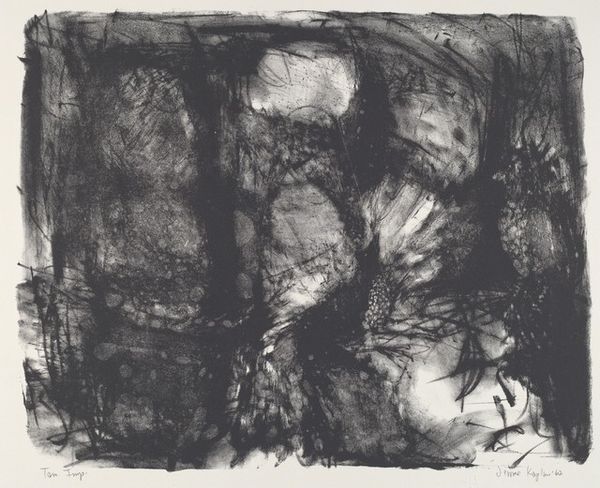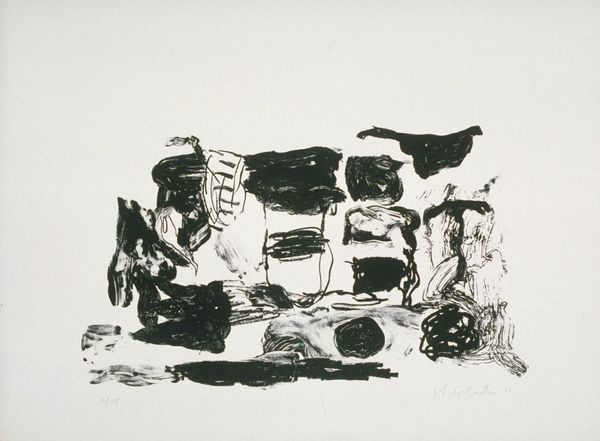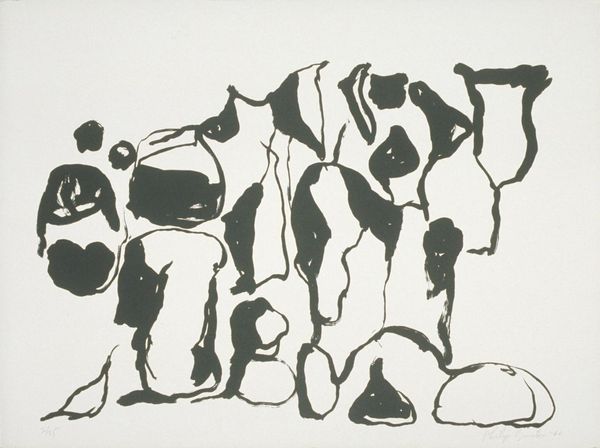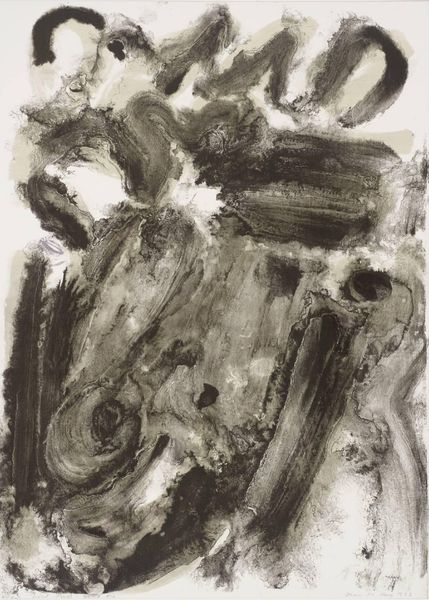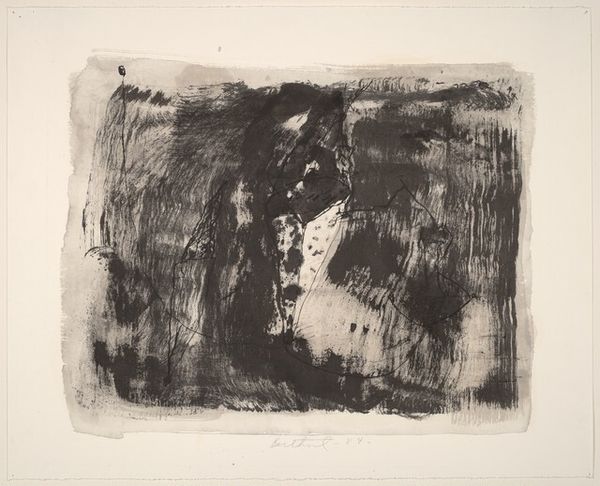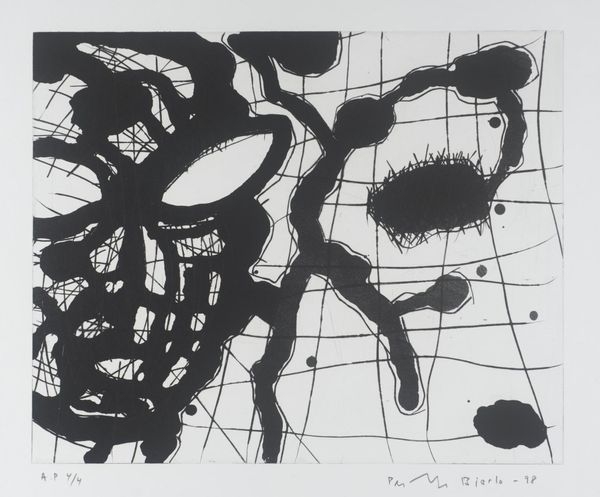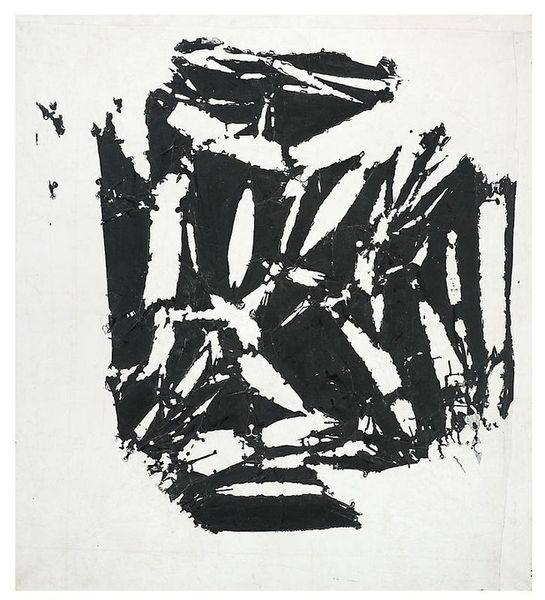
Dimensions: image: 570 x 765 mm
Copyright: © The Estate of Philip Guston | CC-BY-NC-ND 4.0 DEED, Photo: Tate
Curator: Immediately, I'm struck by the starkness of this work – the contrast between the dense black shapes and the white space around them creates a sense of unease. Editor: This is an untitled lithograph by Philip Guston, part of the Tate collection. While undated, it exemplifies his later style, where he grapples with political and personal demons through abstraction. Curator: The forms are amorphous, but there's a distinct sense of weight and oppression. Are these meant to be read as figures, perhaps reflecting on the social and political turmoil of the time? Editor: Absolutely. Guston’s work from this period is deeply engaged with the anxieties surrounding civil rights and the Vietnam War. The apparent simplicity is deceptive; the heavy forms symbolize the weight of these historical burdens. Curator: It’s a visceral, unflinching look at the artist's grappling with the world around him. The raw energy is palpable. Editor: Indeed, a powerful commentary on the human condition amidst socio-political strife.
Comments
Join the conversation
Join millions of artists and users on Artera today and experience the ultimate creative platform.
tate 6 months ago
⋮
In the 1960s, Guston began to question his role as an abstract artist. These lithographs were made at a time of transition when figurative elements were beginning to reappear in his work. Marks are repeated and develop across the series, suggesting solid forms and hinting at recognisable shapes. Gallery label, August 2004
